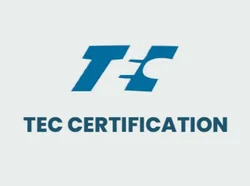Introduction
In a recent regulatory update, the Government of India has made BIS (Bureau of Indian Standards) certification mandatory for four commonly used metals — Nickel, Lead, Zinc, and Tin. This decision will have a direct impact on manufacturers, importers, and suppliers operating in the Indian market.
At IndianNexus, we aim to keep businesses updated with critical policy changes like this, helping you stay ahead of compliance requirements and protect your supply chain from disruption.
What is BIS Certification?
BIS certification is a quality assurance mark issued by the Bureau of Indian Standards, India's national standards body. It ensures that products conform to Indian standards of safety, quality, and performance.
A product's BIS mark signifies that it has been tested and verified through a certified process. For both Indian and foreign businesses, this certification has become a critical part of accessing the Indian market.
Which Metals Are Now Regulated?
The Ministry of Commerce and Industry has notified Quality Control Orders (QCOs) under which BIS certification is now mandatory for the following base metals:
| Metal | Indian Standard Code |
|---|---|
| Nickel | IS 2782:2023 |
| Lead | IS 27:2023 |
| Zinc | IS 209:2024 |
| Tin | IS 26:2024 |
These metals are widely used in industries such as automobile manufacturing, electronics, construction, packaging, and more. The QCOs aim to enhance product quality and reduce the risk of sub-standard imports.
When Does This Take Effect?
-
Nickel, Lead, and Zinc are already under mandatory certification requirements.
-
Tin will require mandatory certification starting October 17, 2025.
If your business deals with any of these metals, it is essential to start the certification process as soon as possible to avoid delays, penalties, or disruption.
Why Has the Government Made This Move?
The primary goals of these regulations include:
-
Ensuring consistent quality in raw materials
-
Enhancing consumer safety
-
Preventing the use of substandard imports
-
Supporting India’s Make in India and Atmanirbhar Bharat initiatives
These standards also bring Indian manufacturing in line with global quality benchmarks, making local products more competitive in international markets.
What Are the Risks of Non-Compliance?
Businesses that fail to comply with the new BIS requirements could face serious consequences under the BIS Act, 2016:
-
Monetary penalties
-
Confiscation of products
-
Legal action or imprisonment
Non-compliance may also result in delays at customs, damage to brand reputation, and lost business opportunities, especially for exporters and suppliers in critical industries.
How to Get BIS Certified
If your business is dealing in any of the four regulated metals, here’s how to get started with BIS certification:
-
Application: Submit your application on the official BIS portal along with the required documents.
-
Testing: Send product samples to a BIS-approved laboratory for evaluation.
-
Factory Audit: BIS may conduct a physical inspection of your manufacturing unit.
-
Grant of License: If all standards are met, BIS will issue the certification.
This process can be complex, especially for small and medium enterprises. That’s where IndianNexus can help — we provide expert guidance, documentation support, and consulting to make your compliance journey smoother and faster.
Final Thoughts
Mandatory BIS certification for Nickel, Lead, Zinc, and Tin is a crucial shift in India’s industrial regulation landscape. For businesses, this change is not just about compliance — it’s an opportunity to enhance product quality, build consumer trust, and become more globally competitive.
At IndianNexus.com, we’re committed to helping you navigate these changes. Whether you need assistance with BIS registration, regulatory filings, or compliance strategy, our team is ready to support you.










